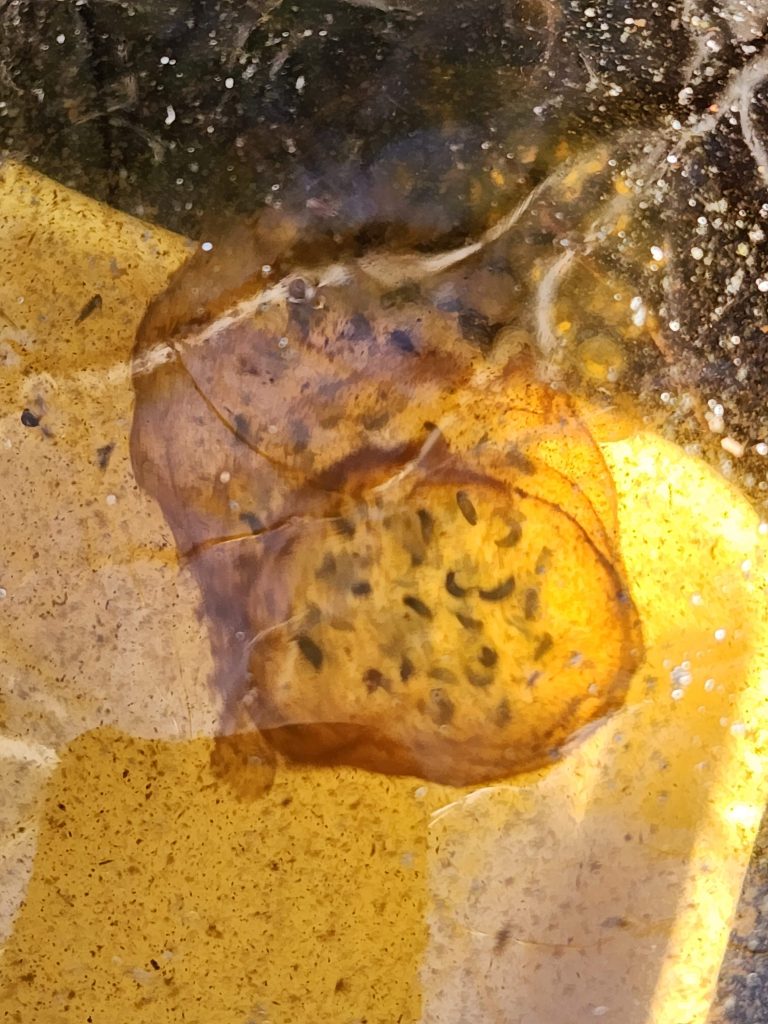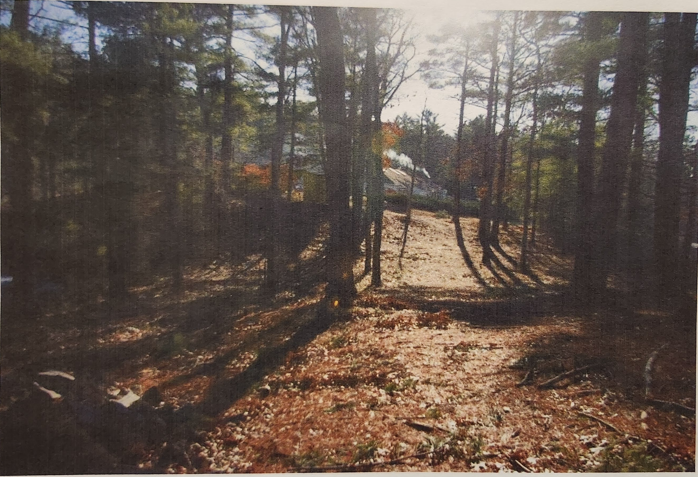Big West Pond: Glacial Kettle Pond, Home to Endangered Species
In northwest Plymouth there sits an idyllic pond surrounded by Pine Barrens forests, smaller ponds, and conservation land. The water in the pond is clear; large mouth bass and pickerel can be found swimming in its grassy, shaded patches. On a windy day, the surface of this large 44-acre pond becomes choppy.
This is Big West Pond, part of a series of over 400 freshwater ponds in Plymouth. Big West Pond, like most of the ponds, are kettle ponds, which formed when chunks of ice were left behind on the landscape by the last glaciers, over 16,000 years ago. They are fed by rainwater mostly; a few are spring-fed. They support a variety of wildlife, including bass, pickerel, trout, several species of frogs, salamanders, migratory birds, turtles, fox, raccoons, migratory birds and birds of prey, deer, and hosts of other local wildlife.
The shores of our Big West Pond are habitat for seven state listed rare and endangered species, including dwarf bulrush, long-beaked beaksedge, Plymouth gentian, resupinate bladderwort, short-beaked beaksedge, terete arrowhead, and federally endangered northern red-bellied cooter.
This map shows the habitat for priority species, as well as wetlands and vernal pools.
The red-bellied cooter is a federally endangered turtle which lives only in the forests of the outer coastal plain, mainly in the Pine Barrens. In Massachusetts, it is only found in ponds and rivers in Plymouth County and eastern Bristol County. The closest other population of this turtle is in New Jersey. Like all of the other threatened species, Mass Fish and Wildlife urges the greatest conservation effort be put forth to protect this species.
Read the fact sheets from Massachusetts Natural Heritage and Endangered Species Program about the rest of the species, and why it is so critical that we protect their habitat.
NHESP Fact Sheets State Listed Species
Vernal Pool Certification
On April 13 2023, CLWC certified a vernal pool located on the shores of this Big West Pond buy conducting a field survey for egg masses and reporting the results to the Natural Heritage and Endangered Species Program using their online portal.
CLWC conducted the field survey for the vernal pool during the breeding season for most amphibians in Massachusetts, which is usually the last two weeks in March through the month of April. During the field survey, CLWC used polarized lenses and a white tray to look just underneath the surface and found eight egg masses for spotted salamander, Ambystoma maculatum, located in just a tiny patch of the vernal pool. More would have likely been found if we had had access to the entire pool.

CLWC documented the evidence using photographs, and submitted the evidence to Mass Wildlife’s Heritage Hub https://eeaonline.eea.state.ma.us/dfg/nhesp/#/home
After about three months, CLWC received word that the vernal pool had been certified by Mass Division of Fish and Wildlife Natural Heritage and Endangered Species Program.
The vernal pool is now protected as an isolated vegetated wetland under the local bylaw.
Click this link to learn more about volunteer certification of vernal pools in Massachusetts https://www.mass.gov/info-details/vernal-pool-certification
Clear-Cutting and Construction in Protected Habitat: Local and State Wetlands Violations
Plymouth’s Wetland Protection Bylaw and our state Wetlands Protection Act have laws to protect this delicate ecosystem. Those who choose to live on the shores of this pond and many others must respect all of the laws in place to maintain the delicate balance of nature on this shoreline.
Therefore it constitutes a violation when a resident on the pond clear-cuts within the buffer zone to a vernal pool and within the buffer zone of the pond. Strict rules are in place as to what types of work can and can’t take place on the shores of this pond in order to protect the species living there.
This photo below shows residential clearing in the buffer zone to Big West Pond that resulted in a vegetation restoration plan:

Unfortunately, the Town of Plymouth is not monitoring the vegetation restoration plan to make sure the native species grow and propagate and reclaim the area. Nor is the Town stepping up to enforce violations against new clearing in the buffer zone of the vernal pool in December 2023.
So when the same resident applied to put in a seasonal dock on Big West Pond, CWLC appealed the wetlands permit, so that the DEP must do a site visit to view the total impact to the area, and hopefully required Natural Heritage and Endangered Species to place additional restrictive conditions on the site.
